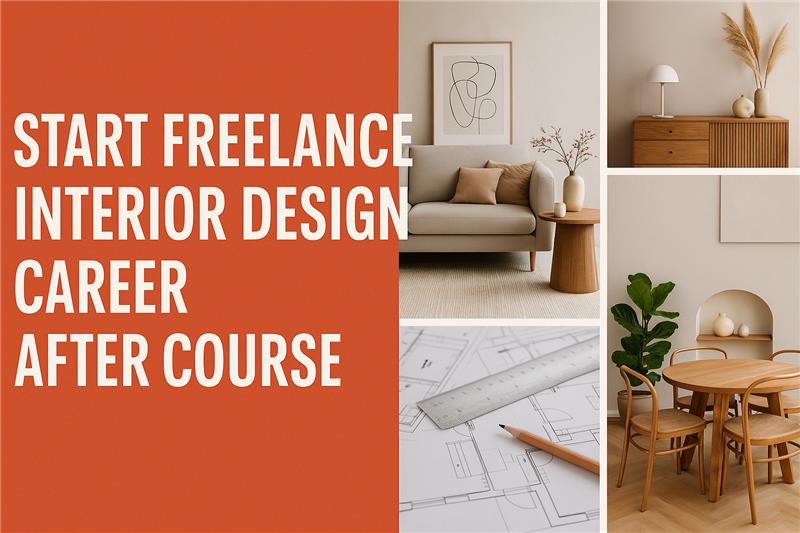How to Start Freelancing After an Interior Design Course in Wardhman Nagar

1. Gain Solid Design Knowledge
After completing your interior design course from Cadence Academy, Wardhman Nagar, you will have learned core design principles such as:
•Space planning
•Furniture layout
•Color combinations
•Material selection
•Lighting techniques
•Basic vastu and styling concepts
These fundamentals are essential to work on residential or commercial spaces. Even small projects can help you gain practical experience and confidence.
2. Learn Essential Interior Design Software
To become a successful freelance interior designer, you must present your ideas professionally. Most courses at Cadence Academy Wardhman Nagar include training in:
•AutoCAD - for creating detailed floor plans
•SketchUp or 3Ds Max – for creating 3D views and walkthroughs
•Photoshop or Canva – for creating mood boards and design presentations
Mastering these tools gives you a competitive edge in today’s digital-first design industry.
3. Create a Strong Portfolio
A portfolio is your key to getting hired as a freelance designer. It doesn’t have to include paid work. Instead, showcase:
• Course assignments and mock projects
• Redesigned layouts of existing spaces
• 3D renders of home or office interiors
• Concept boards and mood boards
Use platforms like Instagram, Behance, or Google Drive to present your work professionally online.
4. Build Your Personal Brand
To stand out as a freelancer, establish a simple and professional identity:
• Use your own name or create a brand name like “XYZ Interiors”
• Design a basic logo and digital visiting card (free on Canva)
• Create a professional page on Instagram and Facebook
• Build a basic portfolio website or use platforms like Houzz, Behance, or Pinterest
Your online presence helps attract clients and showcase your style.
5. List Clear Freelance Interior Design Services
Make a list of interior design services you can confidently offer. Clients appreciate clarity in pricing and deliverables. Common freelance services include:
• 2D layout planning
• 3D interior design views and renders
• Furniture and decor consultation
• Space makeover and styling suggestions
• Online design consultation (also known as e-design)
Start with affordable packages, and revise your rates as you gain experience.
6. Find Your First Clients
Getting your first few clients is all about visibility and networking. Here’s how to begin:
• Offer free or discounted design services to friends and family
• Post your work regularly in local WhatsApp groups and Facebook communities
• Collaborate with real estate agents, builders, or furniture stores
• Share before-and-after transformations or time-lapse videos on Instagram
These efforts help build your portfolio, collect testimonials, and earn client trust.
7. Manage Your Freelance Projects Professionally
Being organized is key to retaining clients and building credibility. Use basic tools to:
• Send quotes and invoices using Google Docs or tools like Zoho Invoice
• Track project status and client revisions
• Store files and client communication neatly (Google Drive or WhatsApp Business)
Professional project handling sets you apart and helps your freelance interior design business grow steadily.
Final Thoughts
Starting a freelance interior design business after completing a course from Cadence Academy, Wardhman Nagar is absolutely possible and highly rewarding. You gain the skills, tools, and creative exposure needed to work with clients, even as a beginner.By building a portfolio, setting up a clear online presence, and offering practical services, you can start working independently and grow step by step. Many successful interior designers began this way—starting small, gaining confidence, and creating a thriving career.